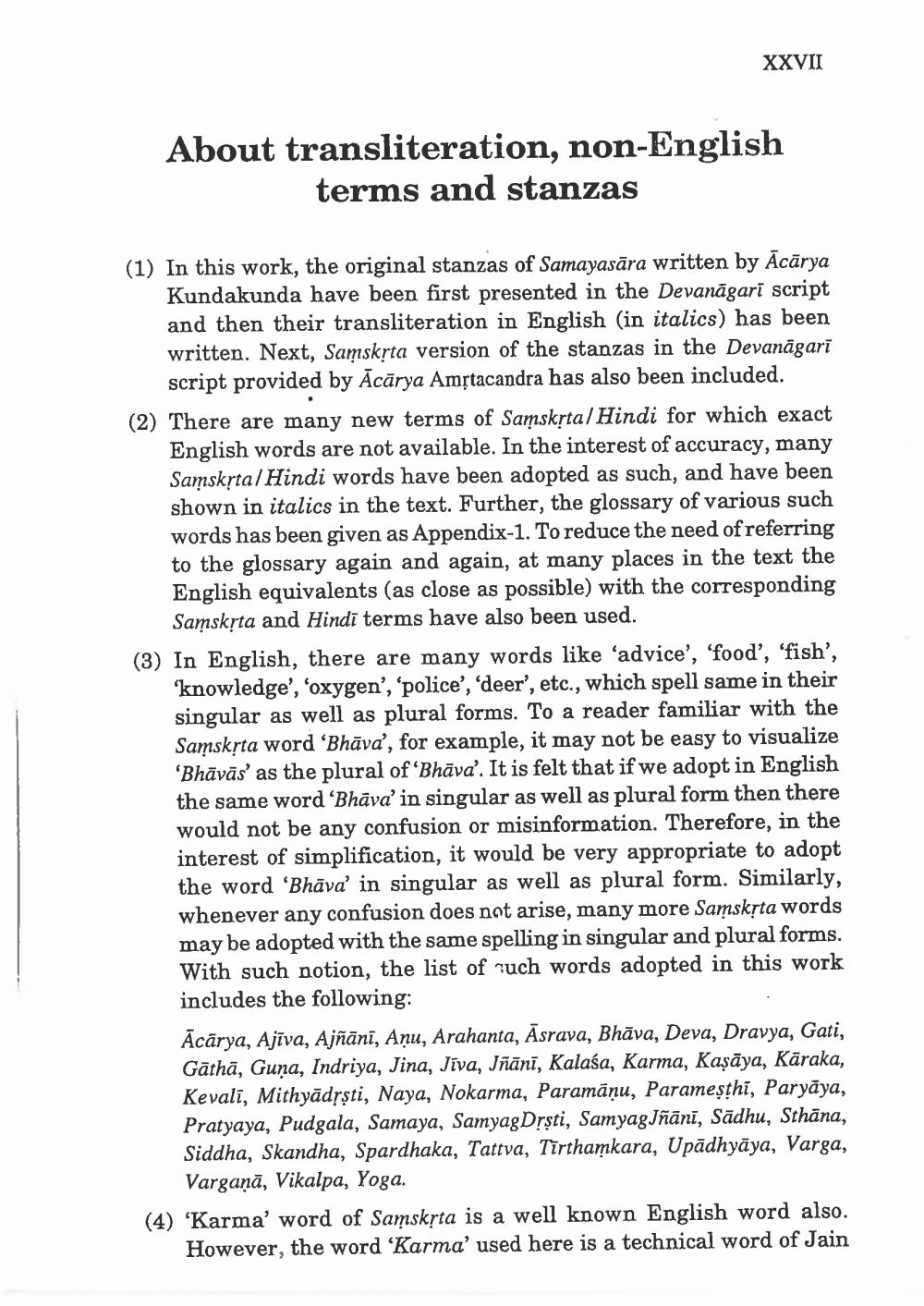________________
XXVII
About transliteration, non-English
terms and stanzas
(1) In this work, the original stanzas of Samayasāra written by Acārya
Kundakunda have been first presented in the Devanāgari script and then their transliteration in English (in italics) has been written. Next, Samskrta version of the stanzas in the Devanagari
script provided by Ācārya Amộtacandra has also been included. (2) There are many new terms of Samskrta/ Hindi for which exact
English words are not available. In the interest of accuracy, many Samskrta/Hindi words have been adopted as such, and have been shown in italics in the text. Further, the glossary of various such words has been given as Appendix-1. To reduce the need of referring to the glossary again and again, at many places in the text the English equivalents (as close as possible) with the corresponding Samskrta and Hindi terms have also been used.
(3) In English, there are many words like 'advice', 'food', 'fish',
knowledge', 'oxygen', 'police', 'deer', etc., which spell same in their singular as well as plural forms. To a reader familiar with the Samskrta word 'Bhāva', for example, it may not be easy to visualize 'Bhāvās' as the plural of 'Bhāva'. It is felt that if we adopt in English the same word 'Bhāva' in singular as well as plural form then there would not be any confusion or misinformation. Therefore, in the interest of simplification, it would be very appropriate to adopt the word 'Bhāva' in singular as well as plural form. Similarly, whenever any confusion does not arise, many more Samsksta words may be adopted with the same spelling in singular and plural forms. With such notion, the list of such words adopted in this work includes the following: Ācārya, Ajīva, Ajñānī, Aņu, Arahanta, Asrava, Bhāva, Deva, Dravya, Gati, Gāthā, Guna, Indriya, Jina, Jiva, Jñānī, Kalasa, Karma, Kaşāya, Kāraka, Kevali, Mithyādssti, Naya, Nokarma, Paramāņu, Paramesthi, Paryāya, Pratyaya, Pudgala, Samaya, Samyag Drşti, Samyag)ñāni, Sādhu, Sthāna, Siddha, Skandha, Spardhaka, Tattva, Tīrthamkara, Upādhyāya, Varga,
Vargaņā, Vikalpa, Yoga. (4) 'Karma' word of Samskrta is a well known English word also.
However, the word 'Karma' used here is a technical word of Jain




